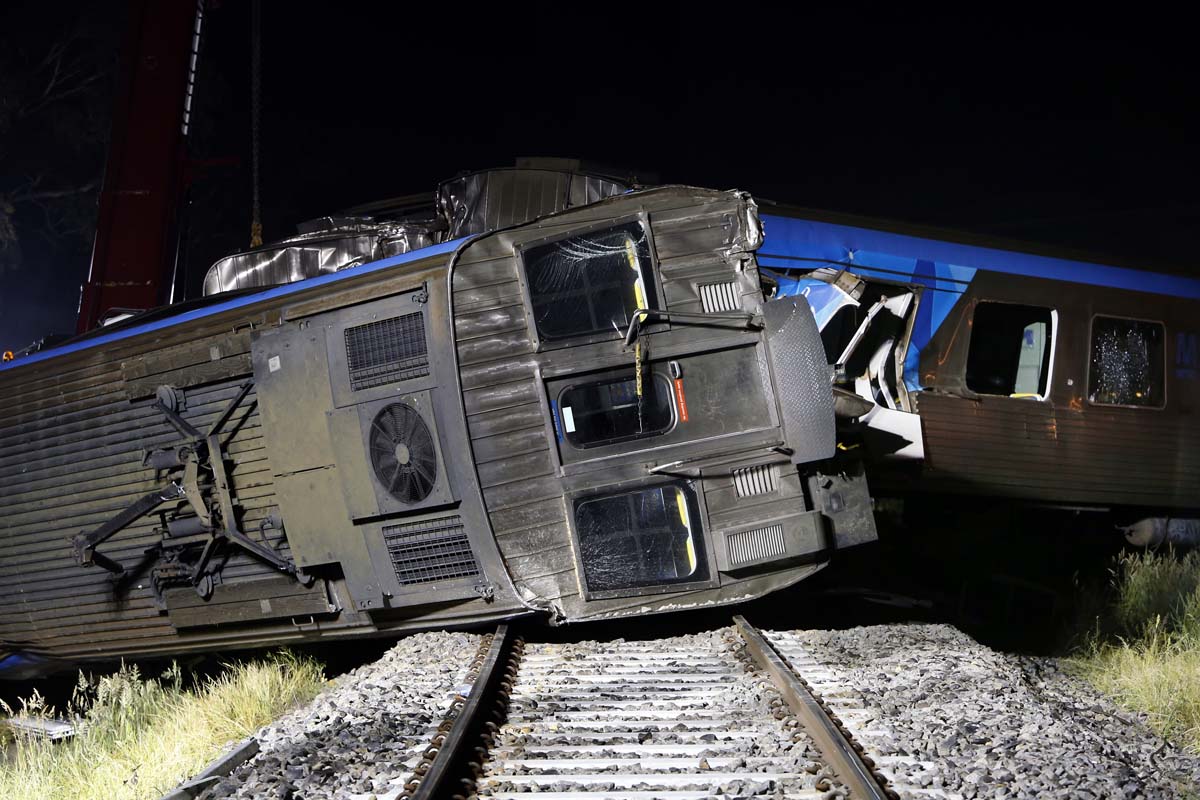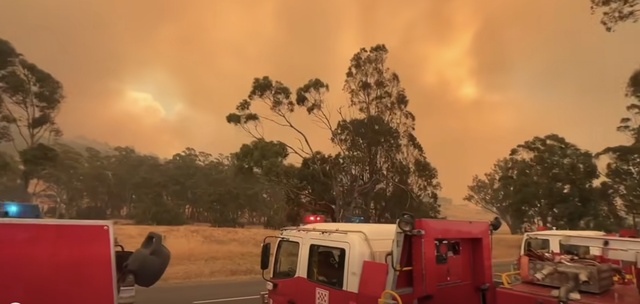By
Clay Lucas and Goya Dmytryshchak, The Age
THE driver of a truck involved in Saturday’s horrific collision with a train
in Dandenong appears to have smashed straight through level crossing boom gates,
the state’s top transport safety official says.
The 69-year-old truck driver from Narre Warren North, whom police have not
named, went through the crossing in Abbotts Road about noon on Saturday. He
walked away unhurt, but the crash left a 43-year-old Cranbourne man on board the
train dead – the first death of a passenger on Melbourne’s electrified rail
system in decades.
CLICK HERE for our gallery showing cranes clearing the tracks.
CLICK HERE for our gallery of the tragic aftermath.
CLICK HERE for our gallery from Saturday night.
The train driver, Trevor King, survived the collision, but remains in The
Alfred hospital, having sustained extensive injuries, including several broken
ribs. Mr King, 30, also received serious head injuries that have led doctors to
place him in an induced coma.
Workers lift a train carriage from the tracks on Sunday at the Dandenong
South accident site. Repairs are expected to take at least five days. Photo:
Luis Enrique Ascui
Mr King’s wife is also a driver for Metro but is on maternity leave, and his
brother is a Metro driver as well.
Thirty passengers were on the train, and the crash sent 12 of them and the
driver to hospital.
It all but destroyed half of a six-carriage train, and left three more trains
marooned in rail yards at Cranbourne, unable to travel to the city for at least
five days while Metro repairs damaged track and the crossing.
On Sunday, workers were building a road on boggy ground alongside the tracks
so that heavy vehicles could gain access to remove the carriages and fix the
line.
Train services will run as normal today except for three stations –
Cranbourne, Merinda Park and Lynbrook – where buses will run to Dandenong while
the repairs are done.
A Metro spokeswoman said on Sunday the repairs would not affect Cup day rail
services.
Three investigations into the crash are under way: by Victoria Police, the
Office of the Chief Investigator and Transport Safety Victoria.
Transport Safety Victoria’s director Alan Osborne said preliminary results
from the scene indicated nothing had been wrong with the train, the rail or the
level crossing.
”As far as I can see, the truck driver has driven straight through [closed
boom gates],” Mr Osborne said. ”We already know from eyewitness accounts that
people have said that the gates were down and everything was working.”
Mr Osborne said there had been ”a lot of rubber left on the road – at some
point the truck driver has applied the brakes”.
He said the crash would, from an investigation point of view, likely end up
being a ”very straightforward, very tragic road traffic accident”.
Mr Osborne said it had been decades since the last fatality on Melbourne’s
rail system.
One Metro train driver said the last passengers killed on the system had been
in 1926, when a train ploughed into a stationary one at Caulfield station.
The RACV’s Brian Negus said Melbourne’s more than 170 level crossings were
causing increasing congestion and danger as train operations increased. Every
level crossing in Melbourne needed to be removed, he said. ”We’re acknowledging
that the government has committed to [removing] 10 in their first term,” he
said. ”But much, much more is needed.”
The federal and state governments needed to work together to remove five
level crossings a year for the next decade, Mr Negus said.
Saturday’s crash was the second fatality at the Dandenong South rail crossing
in four years. There has also been a significant increase in near misses between
trains and vehicles at level crossings, up to 170 in 2011-12, compared with 146
the previous year.
Both the state government and the opposition agree that Victoria had a
history of neglect on level crossings.
Opposition public transport spokeswoman Fiona Richardson called on Premier
Ted Baillieu to heed the community’s request. ”The community for some time have
been saying that we need to get on with the job of actually looking at level
crossings and what can be done to fix [them],” she said. ”In the 1920s the New
South Wales government actually took on the task of fixing every level crossing
around the state.”
Transport Minister Terry Mulder said the government was working to speed up
projects separating roads from railways and funding for the removal of five
level crossings had been confirmed, while a further seven were
planned.








